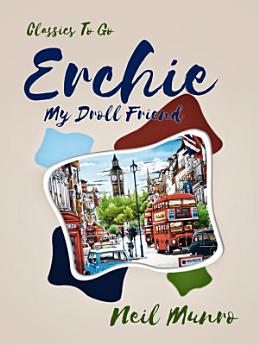Erchie My Droll Friend
Mar 2020 · Otbebookpublishing
Ebook
129
Pages
family_home
Eligible
info
reportRatings and reviews aren’t verified Learn More
About this ebook
Excerpt: "On Sundays he is the beadle of our church; at other times he waits. In his ecclesiastical character there is a solemn dignity about his deportment that compels most of us to call him Mr MacPherson; in his secular hours, when passing the fruit at a city banquet, or when at the close of the repast he sweeps away the fragments of the dinner-rolls, and whisperingly expresses in your left ear a fervent hope that "ye've enjoyed your dinner," he is simply Erchie. Once I forgot, deluded a moment into a Sunday train of thought by his reverent way of laying down a bottle of Pommery, and called him Mr MacPherson. He reproved me with a glance of his eye. "There's nae Mr MacPhersons here," said he afterwards; "at whit ye might call the social board I'm jist Erchie, or whiles Easy-gaun Erchie wi' them that kens me langest. There's sae mony folks in this world don't like to hurt your feelings that if I was kent as Mr MacPherson on this kind o' job I wadna mak' enough to pay for starchin' my shirts."" (Excerpt from Wikipedia)
About the author
Neil Munro (1863-1930) was a Scottish journalist, novelist, and short story writer whose work vividly captured the essence of Scottish life and culture during the late 19th and early 20th centuries. Born in Inveraray, Argyll, Munro's early experiences in the rugged Scottish Highlands deeply influenced his literary voice. He began his career in journalism, eventually becoming the editor of the "Glasgow Evening News," where his sharp wit and keen observations earned him a loyal readership.Munro's literary contributions are notable for their rich portrayal of Scottish folklore and history, often infused with a sense of nostalgia and a deep appreciation for the natural landscape. His "Para Handy" stories, featuring the humorous escapades of a Clyde puffer captain and his crew, remain beloved classics in Scottish literature, showcasing his talent for blending humor with poignant social commentary.A figure of some controversy, Munro's works occasionally sparked debates over their romanticized view of Highland life versus the harsh realities faced by its inhabitants. Nonetheless, his ability to weave intricate narratives with compelling characters left an indelible mark on Scottish literature.Munro's influence extended to contemporary writers, inspiring figures such as Compton Mackenzie and John Buchan. His revolutionary ideas about the preservation of Scottish cultural identity and the importance of storytelling in maintaining national heritage continue to resonate today. Munro's legacy is that of a master storyteller who championed the spirit of Scotland, capturing its complexities and enduring charm for future generations.
Rate this ebook
Tell us what you think.
Reading information
Smartphones and tablets
Install the Google Play Books app for Android and iPad/iPhone. It syncs automatically with your account and allows you to read online or offline wherever you are.
Laptops and computers
You can listen to audiobooks purchased on Google Play using your computer's web browser.
eReaders and other devices
To read on e-ink devices like Kobo eReaders, you'll need to download a file and transfer it to your device. Follow the detailed Help Center instructions to transfer the files to supported eReaders.







